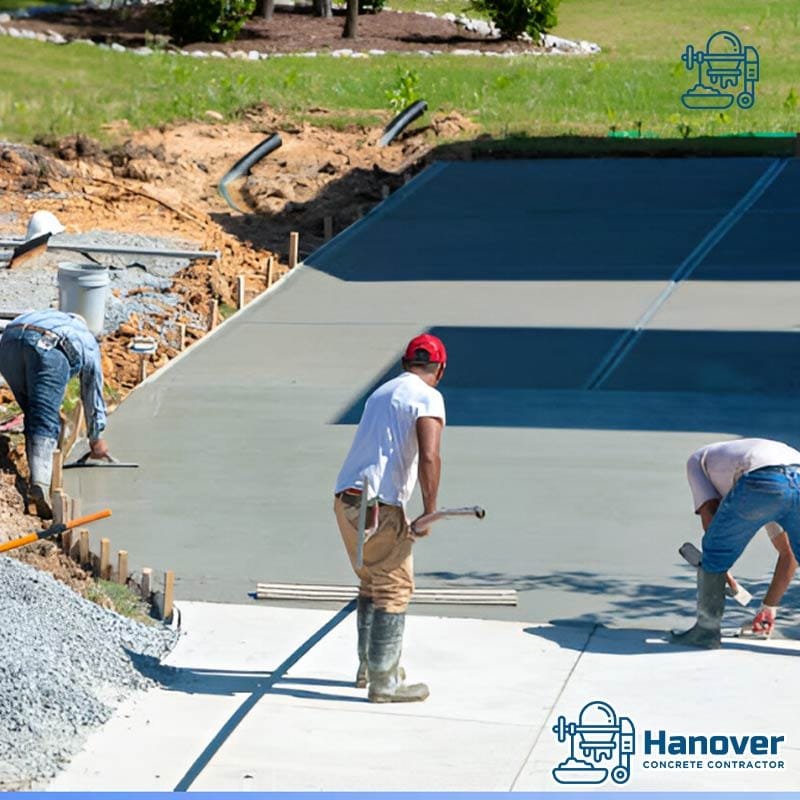When I noticed cracks in my driveway, I asked myself a common question—should I fix it myself or hire a pro? I’ve been through both routes and learned that the answer depends on more than cost. In this post, I’ll walk you through what I learned so you can decide what works best for your home and your budget.
Driveway Damage Types
Before deciding how to fix my driveway, I had to figure out what damage I was dealing with. Not all cracks or holes mean the same thing—and not all need the same repair.
Small surface cracks are the most common. They pop up after a few hot summers or freezing winters. These are usually fine to fix yourself with filler or patching compound.
Then, there are deep cracks or wide gaps. These can mean trouble below the surface. I had one section that kept sinking after heavy rain. That told me the base wasn’t stable. A complete repair or replacement might be the most brilliant move in cases like that.
Potholes are another sign to watch for. They form when water gets under the surface and breaks the material apart. They look small at first, but they get worse fast.
You might also see discoloration or surface wear. This doesn’t always need repair but can make the driveway look old and neglected.
Knowing what type of damage you have makes a big difference. It helps you choose the right solution—and avoid wasting time or money.
DIY Driveway Repair
I’ve done a few driveway repairs on my own over the years. Some were simple, like sealing cracks. Others took more work. If you’re considering doing it yourself, here’s what I’ve learned.
Pros of DIY Driveway Repair
The first significant advantage is cost savings. When I bought a crack filler and a patch kit from the local hardware store, I spent less than a contractor would’ve charged to show up. If you already have some tools, it’s even cheaper.
There’s also the flexibility. I worked on my own schedule. I didn’t have to wait for anyone and could take my time. For someone who likes weekend projects, fixing something with your hands is a good feeling.
Another pro is learning. I messed up a bit the first time I sealed cracks, but I learned fast. I know what to look for and how to handle basic repairs before they worsen.
Cons of DIY Driveway Repair
Still, doing it yourself isn’t always simple. One challenge I ran into was not having the right tools. I had to make multiple trips to the store, which added time and stress.
Some repairs, like deep cracks or sinking spots, are complex to do well without experience. I tried to patch a sunken area once, and even though it looked fine initially, it didn’t last. That job really needed a pro.
Another thing to think about is physical effort. Mixing materials, lifting bags, and working in the sun is tough. It can wear you out fast if you’re not used to that kind of work.
So while DIY repairs can save money, they also come with limits. Knowing your comfort level and skill helps you decide if it’s worth taking on.
Professional Driveway Repair
After trying a few DIY fixes, I eventually hired a professional for a bigger repair job. It wasn’t cheap, but the results were worth it. If you’re considering calling in a pro, here’s what I noticed.

Pros of Hiring a Professional
The first thing I appreciated was the quality of my work. The crew knew exactly what to do. They had the tools, the experience, and a straightforward process. What would’ve taken me a whole weekend, they finished in a few hours—and it looked way better than I could’ve done myself.
Another benefit is long-term durability. A pro doesn’t just fix the surface—they know how to spot deeper problems. In my case, the contractor fixed a drainage issue I didn’t even notice. That probably saved me from more damage later on.
I also liked the peace of mind. I didn’t have to worry about messing it up or wondering if I used the right materials. They handled everything, and I could relax knowing it was done right.
Cons of Hiring a Professional
Of course, the biggest downside was the cost. Professional repairs are more expensive—especially for larger areas or specialty finishes. I had to budget for it and get a few quotes before I picked someone.
You also have to find the right contractor. Not everyone does quality work. I checked reviews, asked questions, and ensured they were licensed and insured. That part took effort.
And once you hire someone, you have to work around their schedule. I had to wait a week for my appointment and be home during the repair. That might not be ideal if you’re in a rush.
Still, hiring a professional makes sense when the job is too big or too important to risk. You pay more but get peace of mind and a lasting finish.
Cost Comparison: DIY vs Professional Driveway Repair
The cost was the first thing I compared when deciding between doing it myself or hiring help. DIY repairs almost always cost less upfront. I bought crack filler and sealer for under $100. That covered what I needed for basic patching and sealing.
Professional repair, on the other hand, was a different story. I got quotes ranging from $500 to over $1,500, depending on the size of the job and the materials involved. More significant fixes, like leveling or repaving, went even higher.
But it’s not just about the first price. If a DIY job fails or doesn’t hold up, you might have to redo it—or pay someone to fix it later. That happened to me once with a poor patch job. What I thought I was saving, I spent twice fixing.
So while DIY saves money short-term, professional repair may save more in the long run—especially if the damage is severe or you want it to last.
Time and Effort: What to Expect from Each Option
When I did my own repair, I didn’t just save money—I spent time. The first time I sealed my driveway, it took most of my Saturday. It was an all-day project between prepping, cleaning, applying, and drying.
Professional repairs are faster. When I hired a team, they showed up with all the tools, did the job, and cleaned up—usually in just a few hours. I didn’t have to lift a finger.
DIY takes more effort—physically and mentally. You must read instructions, gather supplies, and ensure you’re doing it right. That can be satisfying, but it’s not always easy.
Professionals save you time and hassle. But you’ll pay for that convenience. If you’re short on time or unsure about the work, hiring out is easier. DIY might be worth it if you like the challenge and want to save money.
When Should You Choose DIY?
I usually go the DIY route when the job is small and straightforward. If I see a few surface cracks or need to seal the driveway, I know I can handle that. Those repairs don’t need heavy tools or expert skills—just patience and a little time.
DIY also makes sense when the budget is tight. Buying a crack filler and a sealer costs way less than hiring someone. And if you enjoy hands-on work like I do, there’s some pride in fixing it yourself.
You should also consider doing it yourself if you’ve done similar jobs. Once you’ve patched a crack or spread sealer once, the next time is much easier.
But even with small jobs, know what you’re doing. A quick fix can become a big problem if you use the wrong materials or skip the necessary steps.
When Is It Better to Call a Pro?
There were times I had to admit I was in over my head. If your driveway has deep cracks, sinking spots, or drainage issues, it’s time to call a pro. Those problems often go beyond the surface and need special tools or knowledge.
I also bring in a professional when time is limited. I’ve had weeks where I couldn’t spare a day to fix the driveway—and hiring help got it done fast without the stress.
A contractor is worth the money if you care about appearance and long-term results. They know how to match finishes, apply materials evenly, and spot problems you might miss.
In short, if the damage is severe or you want peace of mind, go with a pro. It’s the safer choice.
Final Thoughts on Making the Right Choice
I’ve done both DIY and professional driveway repairs. Both have their place. What matters most is knowing what the job needs, what you’re comfortable with, and what your budget allows.
Start by looking at the damage. Small cracks? You can likely fix them. Deep issues or sinking? It’s best to call a pro.
Ask yourself if you have the right tools, time, and energy to do the job. If not, that’s okay. There’s no shame in bringing in help when it’s needed.
The best repair isn’t always the cheapest—or the fanciest. It’s the one that fits your driveway, your skills, and your goals.
Conclusion
DIY repairs work well for small cracks and surface fixes. They save money but take time and effort. Hiring a pro is the better choice for more significant problems or lasting results. Look at your driveway, budget, and skills—then choose the best option.
FAQs
1. Is DIY driveway repair worth it?
Yes, if the damage is minor and you have the time and tools. It saves money and is manageable for most homeowners.
2. What are the risks of DIY driveway repair?
Using the wrong materials or skipping prep work can lead to poor results and more damage later.
3. How much does professional driveway repair cost?
Costs vary, but most basic repairs range from $500 to $1,500, depending on size and damage.
4. When should I hire a professional?
Call a pro for deep cracks, sinking spots, drainage issues, or when you want a long-lasting finish.
5. Can I switch from DIY to professional later?
Yes. If your DIY fix doesn’t hold up or the damage worsens, a contractor can do a complete repair.





